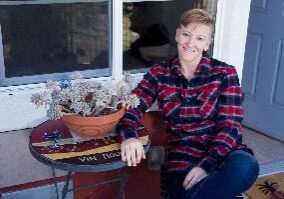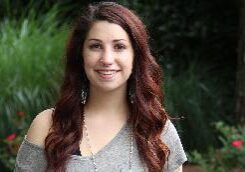Dual Diagnosis Program for Adults with Co-Occurring Alcohol, Marijuana, or Substance Use
Our most intensive level of care for adult clients with co-occurring alcohol or substance use is our residential dual diagnosis program. Clients who admit to our residential dual diagnosis program may step-down to our nonresidential day treatment and intensive outpatient programs as their skills improve.
What is a dual diagnosis residential treatment program?
Individuals in our dual diagnosis residential treatment program have a primary psychiatric diagnosis, such as major depression, bipolar disorder, schizophrenia, BPD, or an anxiety disorder, with a co-occurring substance use disorder. They may have tried to address the mental illness or substance abuse problem individually or sequentially without success.
Research shows that treating both problems at the same time leads to the best results. As a dual diagnosis treatment center, Skyland Trail integrates multiple evidence-based therapeutic approaches to address the symptoms and challenges of both a mood, thought, or anxiety disorder and a substance use problem. Each client engages in a comprehensive, individualized treatment program focused on their unique needs.
Client Stories
What does dual diagnosis look like at Skyland Trail?
The dual diagnosis program is available as an additional area of focus to adult clients in all of our specialized recovery communities in our mental health residential treatment and day treatment programs.
Each client in the dual diagnosis program has a consistent daily group focused on their psychiatric symptoms. We call this a recovery community, and each client is assigned to the CBT, DBT, cognition and first episode, or social integration recovery community. Clients meet in a daily core group to address common challenges and goals.
Clients with co-occurring substance use disorders also are assigned to a second dual diagnosis recovery community. Clients in the dual diagnosis recovery community meet in an additional daily group focused on understanding the addictive process, managing cravings, utilizing community supports and preventing relapse.
For example, a client may be a part of the cognitive behavioral therapy recovery community focused on depression or anxiety, and also participate in the dual diagnosis program to address a problem with alcohol or marijuana use.
In dual diagnosis groups, our addiction disorders experts apply evidence-based therapeutic approaches and relapse prevention models in a way that matches the specific needs of individuals recovering from mental illness and a substance use disorder.
Individual one-on-one sessions with a primary counselor and a psychiatrist are based on a client's self-defined goals and address both psychiatric and substance use challenges. In addition, close monitoring of relapse through witnessed, random drug screens is required for clients in this recovery community.
Our experts give our clients the best chance for recovery through effective medications, therapy and connections to 12-step recovery programs
Our clients also have the time and space to practice newly acquired coping skills, improve their physical health and wellness, explore spirituality as a resource for recovery, and find effective ways to express their thoughts and feelings through art, music or horticultural therapy. Structured social activities help clients learn how to enjoy their leisure time and interact with peers in the absence of drugs or alcohol.
Dual Diagnosis Frequently Asked Questions
The dual diagnosis program is not appropriate for individuals with a primary substance use disorder. Skyland Trail is not a detoxification facility.
Potential clients who are in danger of withdrawal may be referred to a formal detox or rehabilitation facility for treatment before further consideration of treatment at Skyland Trail. Detoxification is a period of time during which the body is allowed to cleanse itself of alcohol or drugs. Detoxification should take place under close medical supervision, typically as a patient in a hospital.
When you contact Skyland Trail, your admissions counselor will work with our psychiatry team to assess your treatment needs. We want to ensure that each person admitted to Skyland Trail can be supported safely and benefit from our therapeutic environment.
Addiction treatment programs are usually more appropriate for individuals with a primary substance use disorder. They may have psychiatric symptoms that result more from substance use than from an underlying clinical mood or anxiety disorder. For these patients, their psychiatric symptoms may begin to improve once they establish sobriety and begin working a recovery program.
Patients who require a dual diagnosis program have a different experience. They may have started using substances to try to manage psychiatric symptoms, and when they stop drinking or using drugs, their psychiatric symptoms tend to get worse. Without dual diagnosis treatment, this feeling of powerlessness can lead to relapse and continued substance use.
Skyland Trail requires all our clients – even those who do not meet the criteria for a substance use diagnosis - to abstain from mood-altering substances like alcohol, marijuana, and street drugs while in treatment. This helps our treatment team get a true picture of a client’s psychiatric illness without substances to cloud or complicate the clinical picture. A clearer diagnosis helps us match clients with the best evidence-based treatment to address their psychiatric symptoms and unhealthy thought and behavior patterns.
Some clients choose to live a life of sobriety after treatment, and others agree to sobriety during treatment but do not plan to abstain from alcohol or substance use long-term. Our treatment teams asks that our clients be open and honest about their substance use so we can make an accurate clinical assessment and give them the best tools for managing mood, anxiety and thought problems.
Helping a loved one enter treatment can be difficult if your loved one is not yet ready.
People tend to recognize they have a problem when they experience consequences. Consider examining how you may shield your loved one from consequences, and what you may need to do differently.
Offer to help them apply to a treatment program, tour the campus with them, participate in an inquiry call, or help them develop a list of questions to ask the admissions representative.
Joining a group like Families Anonymous, Al-Anon, Alateen, or Nar-Anon, can help families start their own recovery process even if their loved one is not open to entering treatment yet.
At Skyland Trail, some clients are assigned to both the dialectical behavior therapy (DBT) core group and the dual diagnosis core group. The DBT core group often is appropriate for clients who struggle with emotion regulation and impulsive behaviors or who have a co-occurring diagnosis of borderline personality disorder.
The dual diagnosis program intersects with the residential DBT curriculum at Skyland Trail in several ways. For many patients, using alcohol or drugs is an impulsive behavior or a behavior that leads to other impulsive actions. Strategies learned in DBT can be applied to maintaining sobriety, and the 12-approach reinforces many of the same concepts. Skills such as wise mind, opposite action, urge surfing, radical acceptance, turning the mind, and TIPP are just a few examples of DBT strategies that a patient can use alongside a 12 step program to support their sobriety.
The 12-step focus on repairing relationships also complements skills learned in DBT to improve relationships through validation, radical acceptance, and interpersonal skills.
Dual diagnosis treatment may be especially important for DBT clients. Impulsive behaviors like self-harm or parasuicidal behaviors that are intended to express pain or seek help can become fatal when combined with alcohol or drugs.
Dual diagnosis combined with DBT helps Skyland Trail clients learn to ask for help in healthy ways and end patterns of impulsive behaviors involving self-harm or substance use
Some Skyland Trail clients are assigned to both the cognitive behavioral therapy (CBT) core group and the dual diagnosis core group. The CBT core group often is appropriate for clients who struggle with negative core beliefs or who have diagnoses of major depression, anxiety, or bipolar disorder.
CBT and dual diagnosis share many of the same principles. For example, a skill in CBT is examining cognitive distortions – looking closely at an idea we have about ourselves or the world and questioning whether that thought is a) a fact with evidence to support it, or whether it is b) an opinion that is not actually supported by the facts. Similarly, in the 12-step approach this skill is called “stinking thinking” and provides a framework to help patients examine their thoughts about alcohol and substance use.
Dual diagnosis treatment may be especially important for CBT clients because of the high incidence of co-occurring substance use among people with major depression, anxiety, and bipolar disorder. Studies consistently show that the lifetime prevalence of substance use disorders among patients with bipolar I disorder is at least 40 percent.
In addition, symptoms of anxiety and depression include withdrawing from or avoiding the people and activities that previously made you feel content or happy. Alcohol and substances can exacerbate this process of withdrawal and avoidance and make it even harder to connect with the people and activities that can help you make positive steps toward recovery. Combined with sobriety, behavioral activation, a CBT skill, can help patients counteract a pattern of isolation and take actions that will help improve their mood.
Skyland Trail clients with schizophrenia and other thought disorders are assigned to the cognition and first episode (CAFÉ) core group. CAFÉ clients with a co-occurring substance use disorder also are assigned to the dual diagnosis core group.
Many of the perspectives taught in the CAFÉ curriculum – building community, having accountability, finding meaning, being of service, connecting to other people, not isolating – are all supported by being a part of a community 12-step program like Alcoholics Anonymous (AA) or Narcotics Anonymous (NA). Being part of the CAFÉ core group and dual diagnosis core group can help these individuals begin to build a stronger support system in the community and reinforce skills they can use to stay healthy or ask for help when they experience relapse or a return of psychotic symptoms.
Dual diagnosis can be especially important for CAFÉ clients because some symptoms of thought disorders, including command auditory hallucinations, are a serious risk factor for suicide. Combining symptoms of psychosis with intoxication from alcohol or drugs can compound the risk for death from suicide.





